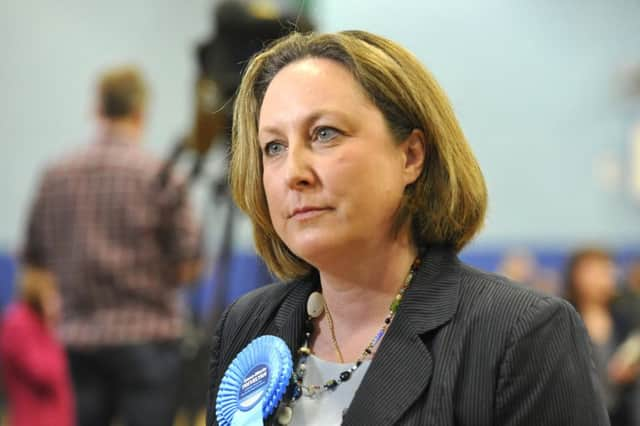Berwick MP rebels with other Eurosceptics over TTIP deal


Prime Minister David Cameron has been forced to accept a critical amendment about the Transatlantic Trade and Investment Partnership (TTIP) after it was signed by 25 Tory backbenchers, including Mrs Trevelyan, and backed by Labour, SNP and Green MPs.
The politicians, led by the Conservative former cabinet minister Peter Lilley, expressed regret that the Queen’s Speech did not include a bill that would protect the NHS from the deal.
Advertisement
Hide AdAdvertisement
Hide AdNeither the EU nor the UK presently has a trade deal with the USA. TTIP would harmonise product specification and create a special regime for investment.
It would also introduce the Investor-State Dispute Settlement System (ISDS). This creates a system of tribunals in which large US companies can sue governments (but not vice-versa) for pursuing policies which harm their investments. There is concern from MPs of all parties, that this element could leave public services, the NHS in particular, open to legal threat by American corporations.
The TTIP deal is being negotiated by the European Commission on behalf of all 28 EU member states.
Mrs Trevelyan said: “I am pleased the Government now accepts that the NHS is at risk from TTIP. Legal opinions by top QCs have warned that TTIP could leave elements of the NHS open to legal challenge which is bad news for democracy and for patients.
Advertisement
Hide AdAdvertisement
Hide Ad“The Government’s acceptance of this amendment will not protect the NHS from TTIP nor will it stop the EU forging ahead with TTIP – the UK has no power to stop that. The only way to prevent the UK and our public services being bound by the terms of TTIP is to leave the jurisdiction of the EU by voting to leave on June 23. Then we can write our own trade deal with the USA which is tailored for our needs and won’t put our valued services at risk.”
However, Mrs Trevelyan did welcome other measures laid out in the Queen’s Speech, which she believes could improve the lives of those in rural communities across Northumberland.
“The Digital Economy Bill is intended to assist those living in rural communities, such as Northumberland, access good broadband which for many is still a dream,” she said. “It would enable people to demand a connection, and at a decent speed, even though they may live in a difficult to reach area.
“I will be looking hard at the finer detail of the Bill when it comes before Parliament, as I will want to ensure that the cost cap enables my constituents in Northumberland to get connected. At present, it is easy for BT Openreach to say it is too difficult or too expensive to connect some properties – I hope this Bill will prevent those excuses and I look forward to working on it this year.”
Advertisement
Hide AdAdvertisement
Hide AdThe Queen also announced the new Neighbourhood Planning and Infrastructure Bill, which is claimed will reform planning and give local communities more power and control to shape their own area.
Mrs Trevelyan said: “Those of us that live in small rural villages want them to thrive and to welcome new families to live in them. Most people I speak to recognise the need to build new homes, but want them to complement rather than overwhelm existing communities and services.
“Neighbourhood plans set out where new homes can be built within existing towns and villages and ensure the county council cannot overrule the views of local communities. That is why it is so important that each parish council drafts a neighbourhood plan.
“I wrote to every parish council in my constituency some months ago and many told me they have not yet formulated a plan – this leaves those villages vulnerable to unsympathetic developments. I would encourage councils to establish plans to ensure local communities are the driving force behind any new developments.”